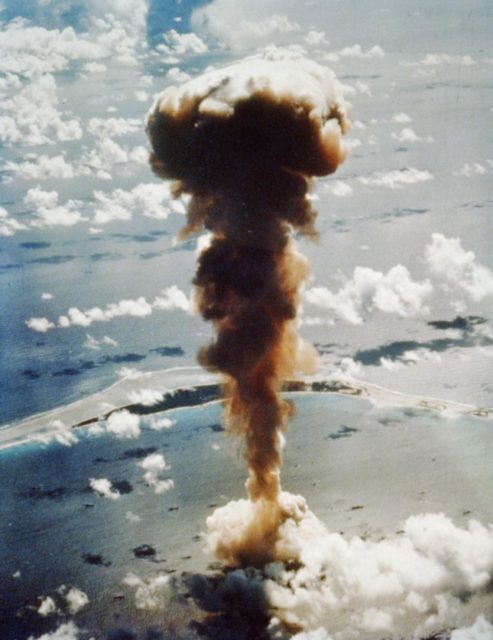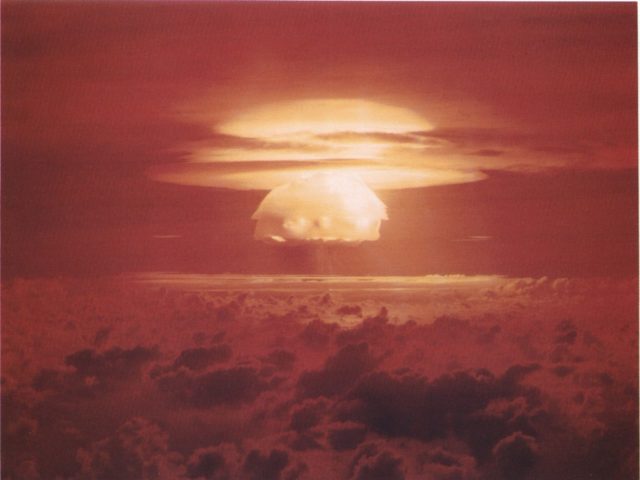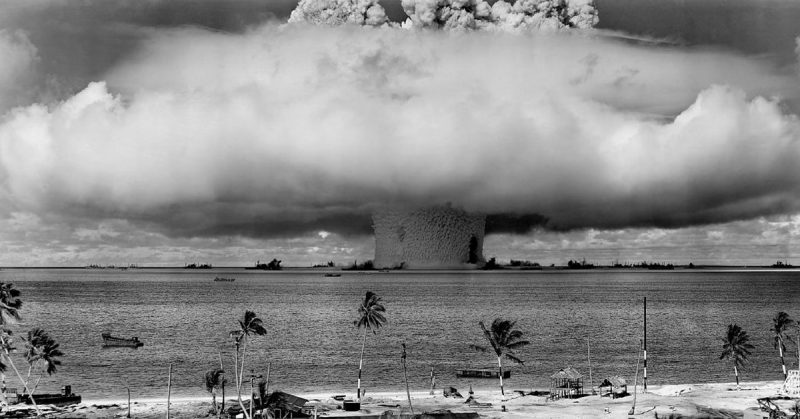Bikini Atoll, the string of islands that the U.S. used as nuclear testing grounds between 1946 and 1958, is still too radioactive to be inhabited.
For 70 years, the 67 nuclear tests not only prevented natives from returning as promised by the U.S. government, but has also led to overcrowding on other islands.
The Proceedings of the National Academy of Sciences in the United States of America published a study in which tests were performed on all six islands in the northern Marshall Islands. Those tests show that radiation levels are still too high to resettle the islands.

The Bikini Island in the Bikini Atoll was even more hazardous than was previously believed. It exceeds the levels set by both the U.S. and Marshall Island governments for safe habitation.
The study did find that Rongelap and Enewetak Atolls had “external gamma radiation levels well below the… standard for safe habitation”. The scientists did stop short of recommending rehabitation on these islands because of concerns over radiation in “other exposure pathways.” Food is one such pathway.
“Without measuring other exposure pathways, we are not able to make a determination as to whether these islands are indeed safe for habitation,” the scientists wrote in their conclusion. “There is a population currently living on Enewetak, in some trepidation as to whether or not their environment is safe. In addition, there is currently a large population of displaced Marshallese people who desire to return to Rongelap and Bikini.”
Given these circumstances, it seems imperative that further steps be taken to analyze additional exposure pathways to make a definitive statement as to whether these islands are safe for habitation.”

Part of the hesitancy to reestablish populations on these islands stems from failed attempts in the past. In 1968, the U.S. government resettled Bikini Island. 10 years later, the islanders were forced to evacuate again when dangerous levels of radiation were discovered. The radiation caused stillbirths and other health issues in children and adults.
The Marshall Islands are the recipients of several trust funds set up by the U.S. in addition to cash for medical expenses and other matters.
